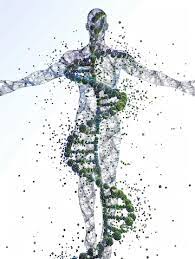Understanding Depression: Breaking the Stigma and Finding Hope through Effective Treatments
Depression is a silent epidemic
that affects millions worldwide. According to the World Health Organization
(WHO), over 264 million people suffer from depression globally, making it one
of the leading causes of disability. Despite its prevalence, depression remains
widely misunderstood, stigmatized, and often overlooked. In this article, we
delve into the complexities of depression, explore its impact on individuals
and society, and discuss strategies for coping and finding hope in the face of
this mental health challenge.
Depression is more than just
feeling sad or down. It is a serious mental health condition characterized by
persistent feelings of sadness, hopelessness, and loss of interest or pleasure
in activities once enjoyed. Symptoms of depression can vary widely from person
to person and may include changes in appetite or weight, sleep disturbances,
fatigue, difficulty concentrating, feelings of guilt or worthlessness, and even
thoughts of self-harm or suicide.
It's important to recognize that
depression is not a sign of weakness or a personal failing but rather a complex
interplay of genetic, biological, environmental, and psychological factors.
Research suggests that genetics, brain chemistry, and life events such as
trauma, loss, or stress can all contribute to the development of depression.
Depression can impact every
aspect of a person's life, from their relationships and work performance to
their physical health and overall well-being. Untreated depression can lead to
serious complications, including substance abuse, chronic pain, and even an
increased risk of heart disease and stroke. Moreover, depression can have
profound social and economic consequences, costing billions in lost
productivity, healthcare expenses, and disability benefits.
Despite its significant burden,
depression remains vastly underdiagnosed and undertreated. Many individuals
suffering from depression may not seek help due to fear, shame, or stigma
surrounding mental illness. Moreover, limited access to mental health services,
particularly in low-income or rural areas, further exacerbates the problem.
Breaking the stigma surrounding
depression and promoting open, honest conversations about mental health is
crucial in overcoming barriers to treatment and support. Education and awareness
campaigns can help dispel myths and misconceptions about depression,
encouraging individuals to seek help and support when needed.
If you or someone you know is
struggling with depression, it's essential to reach out for help. Treatment
options for depression vary but may include psychotherapy, medication,
lifestyle changes, and support groups. Therapy, such as cognitive-behavioral
therapy (CBT) or interpersonal therapy, can help individuals identify and
address underlying issues contributing to their depression and develop coping
skills to manage symptoms effectively.
Medications, such as
antidepressants, can help rebalance brain chemistry and alleviate symptoms of
depression. However, it's essential to work closely with a healthcare provider
to find the right treatment approach for your unique needs and monitor for any
potential side effects.
In addition to professional
treatment, self-care practices can play a crucial role in managing depression.
Engaging in regular physical activity, maintaining a healthy diet, getting
adequate sleep, and practicing stress-reduction techniques such as mindfulness
or meditation can all contribute to improved mood and overall well-being.
Building a strong support network
of friends, family, and peers who understand and validate your experiences can
provide invaluable emotional support and encouragement on your journey to
recovery. Support groups and online forums can also offer a sense of community
and connection with others who may be facing similar challenges.
Finding hope in the midst of
depression can feel like an insurmountable task, but it is possible. Recovery
from depression is not a linear journey, and it may involve setbacks and
relapses along the way. However, by seeking help, building resilience, and cultivating
self-compassion, individuals can learn to manage their symptoms, regain a sense
of control, and rediscover joy and meaning in their lives.
In conclusion, depression is a
multifaceted mental health condition that affects millions worldwide. By
raising awareness, breaking the stigma, and promoting access to effective
treatment and support, we can work together to create a world where everyone
struggling with depression feels seen, heard, and supported on their journey to
healing and recovery.



Comments
Post a Comment